What are the Different Types of HR Software
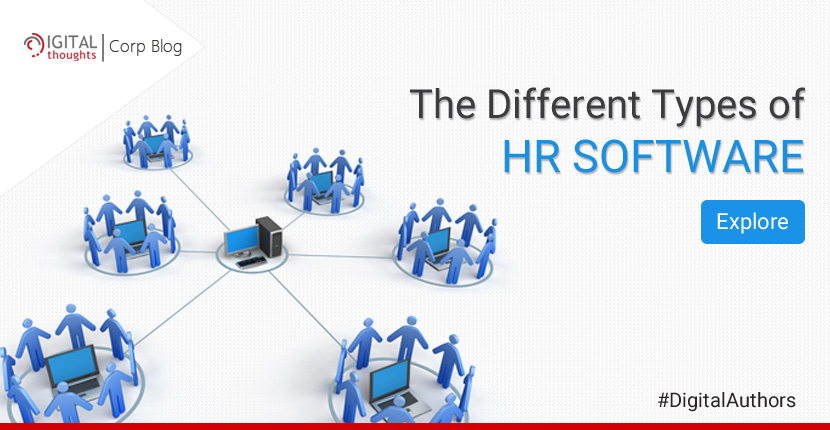
If you go to the market looking for a software to automate your HR processes, you’ll come across different acronyms – HRMS, HRIS, HCM – as well as names like talent management system, payroll, applicant tracking system and so on. This might make you wonder which software to choose and what’s the difference between the functions performed by each one of them. So, let’s take a closer look at the 5 key types of HR software available in the market today and how each one of them offers a different set of capabilities to cater to different business requirements.
1] Human Capital Management (HCM)
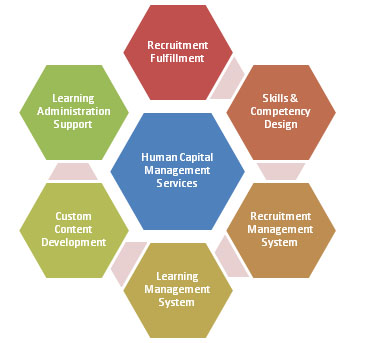
Source: https://reut.rs/2GsZRCL
As the name suggests, the HCM is a HR software that focuses on managing the human capital in an organization. In other words, the HCM is designed to help the HR track the development and performance of the employees. An HCM allows employees to set performance goals and track the progress. So, the HCM is more employee oriented and its functionalities are centered around helping the employees better their skill set.
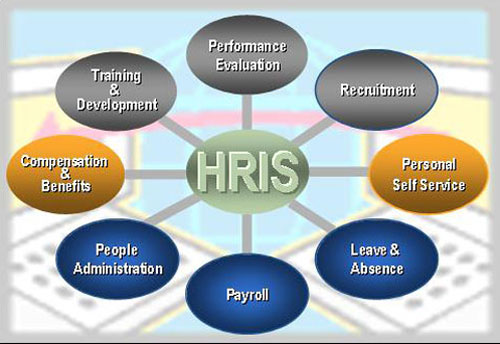
Source: https://bit.ly/2Ebt0Ah
The Human Resource Information System (HRIS) is a term used for an employee information management software that is designed for complete management and systematic tracking of employee data. The personal as well as the professional details of the employees can be stored in the HRIS. The software makes it possible for the HR department to get easy access to complete employee information without the hassles of maintaining folders manually. A term popularly used in the U.S., there are some versions of HRIS that have additional features incorporated to make the daily tasks of the HR department easier. The additional modules/functionalities are as under:
• Benefits management
• Payroll
• Time & Attendance
• Training & Skill Development
• Payroll
• Time & Attendance
• Training & Skill Development
3] Applicant Tracking Software (ATS)
Source: https://bit.ly/2Ebb0Wu
4] Payroll Management System
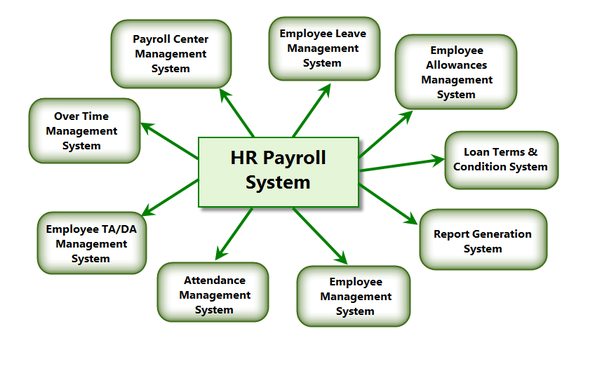
Source: https://bit.ly/2Ea49N1
As the name suggests, the payroll software is designed for the management of employee salary, reimbursements and incentives. The payroll management system can be integrated with the attendance and leave management systems to calculate the salary of the employees. The payroll software automates the entire process of salary calculation, including the standard deductions towards taxes, thus ensuring the salary is credited on time and there are no discrepancies.
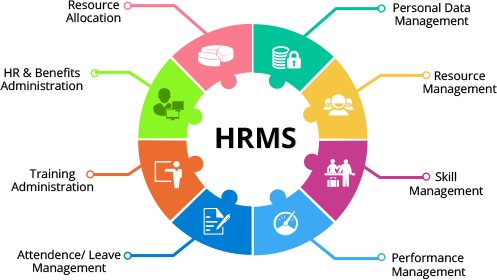
Source: https://bit.ly/2BrRci0
The Human Resource Management System (HRMS) is a software that is designed for automation of every human resource task. So, the HRMS software is a combined package of all the individual HR software we have discussed above, along with a lot of additional features. A HRMS software offers a separate module for each functionality and given below are some of the key modules you find in Digital HRMS, a comprehensive HRMS software developed by The Digital Group.
• Administrator Rights
• Time & Attendance Management
• Leave Management
• Recruitment Gateway
• Onboarding
• Training and Development
• Benefits Administration
• Automated Reports
• Employee Self Service
• Time & Attendance Management
• Leave Management
• Recruitment Gateway
• Onboarding
• Training and Development
• Benefits Administration
• Automated Reports
• Employee Self Service
In addition to the types of HR software that we have seen above, you may also find HR software that caters to the other individual modules of the HRMS. Before you go ahead and invest in a HR software, it is recommended that you analyze the requirements of your organization. Digital HRMS is a modular HRMS software that allows you to pick and choose the modules that cater to your needs, so that you can start small and add modules later on to cater to the evolving needs of your business.
